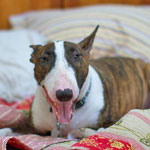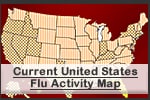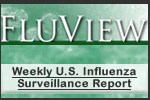 You probably have been to a restaurant near a hospital (or a café inside a hospital) and seen a doctor, nurse or medical assistant wearing scrubs and standing in line for a sandwich. You probably didn’t give this a second thought, the way you wouldn’t if you saw a police officer in uniform or a priest wearing a collar.
You probably have been to a restaurant near a hospital (or a café inside a hospital) and seen a doctor, nurse or medical assistant wearing scrubs and standing in line for a sandwich. You probably didn’t give this a second thought, the way you wouldn’t if you saw a police officer in uniform or a priest wearing a collar.
Dr. David C. Martin, a retired Sacramento anesthesiologist a former assistant professor in the Department of Anesthesiology and Pain Medicine at UC Davis Medical Center, thinks you should be alarmed. He has a niche mission that Antidote has never seen championed before. He wants to rid America’s restaurants of medical staff eating in scrubs. He makes his case over a three-part series that begins today. The first part is below.
Part two will run later this week and conclude with part three, in which I will bring in some voices from the larger health care community to talk about this confrontational approach to a covert public health issue. Here’s Dr. Martin.
I was enjoying lunch at a popular Sacramento restaurant last week, when two patrons walked in wearing green surgical attire, “scrubs” as they are commonly called. Both were wearing official badges from a large, local hospital, revealing one to be a physician, the other a registered nurse. Concerned that these scrubs had been exposed to communicable bacteria, I politely asked that the healthcare workers leave the restaurant, and return only in regular attire. Both were mildly annoyed but agreed to depart. I asked them to leave because the use of scrubs in the community can create a serious and avoidable public threat. I am also convinced that simple public action can play a powerful role in effecting change. I hope to bring misuse of hospital attire to greater public awareness and to solicit broader public action in addressing this potentially dangerous problem of scrubs transmitting pathogens from the hospital into the public and from public places back to the hospital, where these pathogens may cause grave harm to vulnerable patients.
The Joint Commission on Accreditation of Healthcare Organizations (JCAHO), which certifies and accredits healthcare organizations, has launched a bold initiative called “Speak Up,” which encourages individuals to take an active role in reducing our risk of infection by assuring that our providers wash their hands and wear gloves. JCAHO has even published a coloring book for children, to teach, early in life, that it is not disrespectful or inappropriate to speak up and remind our physicians and other providers to take appropriate safety measures.
For adults, the Joint Commission issues buttons, to be worn by healthcare providers, which say, “Ask me if I’ve washed my hands.” This initiative is supported by the American Hospital Association and the Centers for Disease Control and Prevention, among many other quality and safety organizations. Some hospitals and clinics have embraced and enforced rigorous hand washing protocols have reduced their rate of institution-acquired infections, in some cases quite dramatically.
Yet, believe it or not, many healthcare workers have not complied with institutional policy on hand washing.
At a forum on hand hygiene organized by Loyola University Medical Center and Medline Industries in March, experts reported that hand-hygiene compliance was lax nationwide. But it takes a lot of effort to get everyone “on board.” I believe that the growing concern over scrubs as a vector of disease, while less important than sound hand-washing practices, is a substantial problem that merits similarly aggressive action.
Most California hospitals have official or unofficial policies, which restrict the use of hospital scrubs to surgical suites and related patient-care areas. Wearing them or laundering them outside of the hospital is forbidden or discouraged, but enforcement of such policy is a difficult task.
I spoke about this concern with quality assurance personnel at two of the four major hospital organizations in the Sacramento area. The two others failed to return several calls. One of the quality assurance staff members shared an observation that her organization had been effective in curtailing scrub misuse by non-physician staff, but that physicians were frequently allowed to break the rules. She said that many considered themselves to be “above the law” in this regard. Some travel to and from their own homes in contaminated scrubs, which suggests that this practice stems less from a disregard for others and more from a curious type of denial and disbelief that hospital-contaminated scrubs offer any real threat. Are these the same professionals who have resisted aggressive hand-washing protocols, which make a huge difference in institutional infection rates? As a physician who has spent most of my career in the surgical suite, I find this perplexing.
The notion that our physicians and nurses are immune to error, or unapproachable regarding its potential should have been laid to rest long ago. None of us should share public space with those who unnecessarily risk compromising public safety, knowingly or otherwise. I believe, as does the medical community at large, that it is time for all of us to take responsibility for our health and safety, rather than displacing the entirety of this onus to our caregivers. Purging public spaces of hospital-exposed garments could make more than a public fashion statement. It could reduce illness and even death from infectious disease.
Next: Why superbugs may show up wearing scrubs





 You probably have been to a restaurant near a hospital (or a café inside a hospital) and seen a doctor, nurse or medical assistant wearing scrubs and standing in line for a sandwich. You probably didn’t give this a second thought, the way you wouldn’t if you saw a police officer in uniform or a priest wearing a collar.
You probably have been to a restaurant near a hospital (or a café inside a hospital) and seen a doctor, nurse or medical assistant wearing scrubs and standing in line for a sandwich. You probably didn’t give this a second thought, the way you wouldn’t if you saw a police officer in uniform or a priest wearing a collar. 


